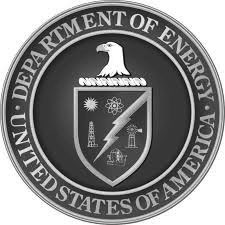The ongoing war in the Middle East has sparked controversy throughout the U.S. Students at universities across the country have protested on campuses, including at Columbia University, New York University and Yale University.
Nearly 400 people gathered on April 19 at Beinecke Plaza on Yale’s campus to oppose the numerous bombings taking place on the Gaza Strip and to decry Yale’s investments in military weapons manufacturers that could be tied to Israel. The protests started on April 13.
Yale’s Advisory Committee on Investor Responsibility (ACIR) was formed in 1972 to address ethical responsibilities of institutional investors. According to acir.yale.edu, the committee addresses “social responsibility issues ranging from company investment in South Africa, to defense contracting, political lobbying and environmental safety.”
Protesters are calling on Yale to divest from military weapon manufacturers. On April 17, the ACIR updated its policy to limit their investments with assault weapon manufacturers, not military weapon manufacturers.
“The ACIR concluded that military weapons manufacturing for authorized sales did not meet the threshold of grave social injury, a prerequisite for divestment,” Yale University wrote in a statement.
But that was insufficient, according to some students.
In an interview published in the campus newspaper, Yale Daily News, Yale student Aly Moosa said, “If we’re contributing to war, if we’re contributing to genocide, it doesn’t matter if you draw a distinction between (military) weapons manufacturers and assault weapons.” The university has asked students to take down their tents, while students are asking for meetings with the Corporation Committee on Investor Responsibility.
“We are tired of the Trustees hiding behind administrators and advisory committees,” a student said to the Yale Daily News. “We would only begin to consider dispersal if the trustees themselves agreed to face us.”
Early on the morning of April 22, 48 people were arrested, 44 of whom were Yale students. The students were arrested for refusing to vacate the Plaza and were charged with trespassing. They have since been released and will appear in court May 8. A warning was given at 11 p.m. on April 21 and 7 a.m. on April 22, from the Yale Police Department before the arrests started.
The protests relocated to Cross Campus after the arrests.
Yale faculty has spoken out about the protests. Two groups of faculties sent letters to Yale Pres. Peter Salovey and other administrators.
One of the faculty groups is affiliated with the Faculty for Justice in Palestine (FJP). According to FJP’s website, they are “a national network of organized academic chapters, composed primarily of faculty and staff, that emerged during the genocidal war on Gaza’s population and its built environment.”
Members of the Yale chapter condemned the student arrests and any disciplinary action that may be taken toward students.
“As educators, we are in awe of the commitment, discipline, and peacefulness our students have shown despite being doxxed, intimidated, falsely accused, and now arrested,” the message said. “They were, in fact, admirably heeding the president’s call to ‘act with compassion and civility, especially when the values we stand for are being severely tested.’ This warrants respect and tolerance rather than discipline and threats.”
Another group of Yale faculty sent a letter urging for support of Jewish students and faculty while criticizing the university’s use of enforcing school policies. The letter said Salovey “lost control of the campus,” while the administration “constrained the police inappropriately on Saturday night” and “defended all manner of hate speech against Jews.”
Yale University joins other campuses in pro-Palestine protests
Erin Smith, Politics Editor
April 29, 2024
0
More to Discover



